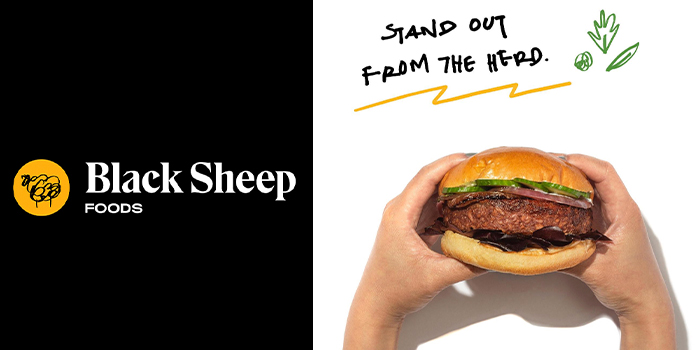Black Sheep Foods Closes $12.3M, Fuels Foodservice Approach To Plant-Based Lamb

Food technology company Black Sheep Foods has closed a $12.3 million Series A funding round that it plans to use to grow foodservice sales of its plant-based lamb and game meats.
The raise, announced Thursday, was led by venture firm Unovis, a financial backer of numerous plant-based companies including Wicked Foods, Abbot’s Butcher, Good Catch and Alpha Foods as well as cultured meat startups Upside Foods (née Memphis Meats) and Mosa Meats. Bessemer Venture Partners, AgFunder, and KBW Ventures also contributed on the round, bringing Black Sheep Food’s total investment to $18.05 million since it was founded in 2019.
Rather than battle it out on the crowded plant-based meat retail shelves, Black Sheep is targeting the foodservice channel over retail. Though other plant-based meat brands have eventually made the jump to retail, Black Sheep has no immediate plans to move too quickly into grocery, founder Sunny Kumar told NOSH.
“You want people’s first experience to be in this sort of magical setting of food service and you have this meal prepared that’s excellently done and you’ve explored the versatility and the use case for the lamb,” Kumar said. “Then you kind of start saying: ‘Oh, man, if I had this as a home cook, I’d be able to do X, Y, and Z.’”
Most importantly, Black Sheep sees opportunity in reaching underserved cuisines with a plant-based option for lamb. Many cultures use lamb over beef as the primary red meat in their own regional cuisines, yet the U.S. plant-based market is largely burger and chicken alternatives. The company also has plans to release vegan duck and boar products as well.
The company has seen consistent month-over-month sales growth from its 44 restaurant partners, fueling the need to shift to a more robust production facility. Although Black Sheep plans to use some of the capital infusion to scale with a new co-packer capable of producing 16 million pounds per year, the expansion approach remains to be “thoughtful growth,” Kumar said.
Black Sheep is currently available at select restaurants in the San Francisco Bay Area and Los Angeles. The brand plans to test the Texas market next before eventually expanding to New York City and other major metropolitan areas.
“It’s not about can you sell $1 for 70 cents, right? [Or] can you buy growth?” he said. “It’s about can you get repeat customers? Can you have good margins? Are you scaling up properly? Can you make product improvements over time?”

Part of that focus came from Kumar and co-founder Ismael Montanez’s experience in the alternative protein space working at plant-based and cell-cultured seafood maker Finless Foods. Through their work at the alt-seafood maker, they realized that creating unique flavors and building a tasting experience into a product was key to driving success in the plant-based category.
Black Sheep designed itself to not be reliant on the existing flavor compounds available through the larger flavor houses, Kumar said. In some ways, he said, Black Sheep’s approach to R&D in flavor technology is its biggest strength, having built a vertically-integrated R&D model that gives it “flavor freedom,” as one company representative called it.
“It’s the same concept of Apple where they say those who want great software, make the hardware. And I think vice versa. If you want to create great hardware, you should own the software that runs on top of it,” he said.
That approach has resulted in the need to go through the often time-consuming process of FDA regulatory approval for its novel flavor compounds. Currently, the company’s duck product is “code-base complete” and waiting for regulatory approval for the compounds before it can begin to offer it commercially.
“As someone who has grown up with this taste profile, I couldn’t believe the authentic mouthfeel and flavor,” said KBW Ventures founder Prince Khaled bin Alwaleed in a statement, “Game meats are still a wide open playing field. There’s a whole range of taste profiles that Black Sheep will be able to explore, especially with the company’s technology, allowing for an amplified flavor, excellent texture, and a strong nutritional profile.”

















